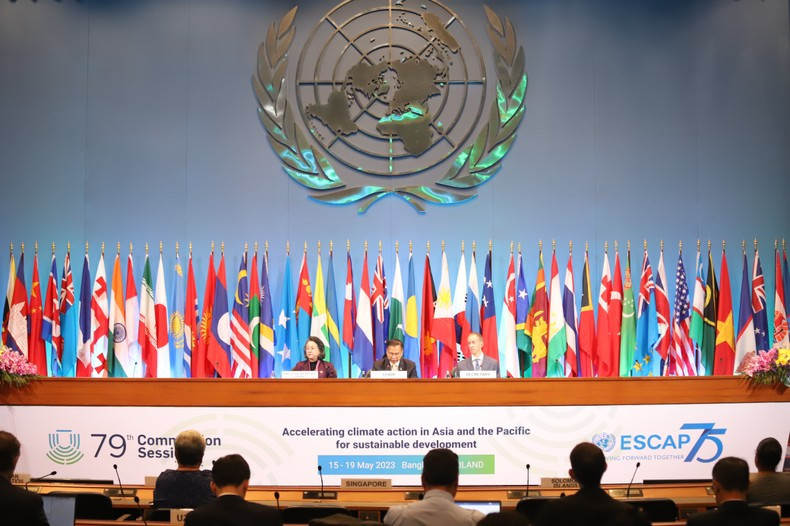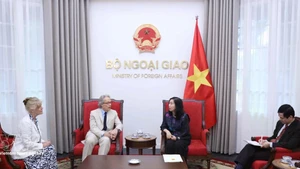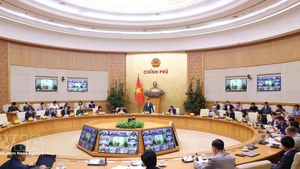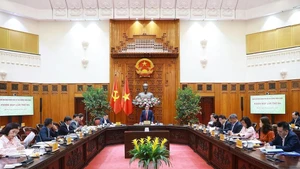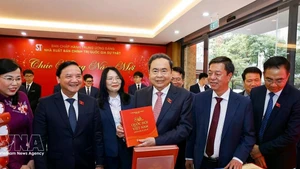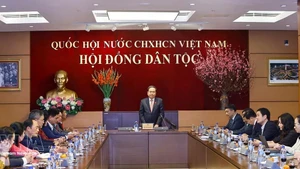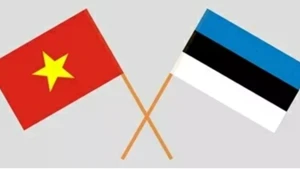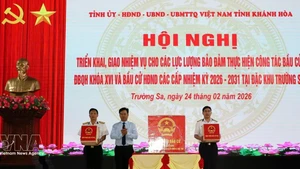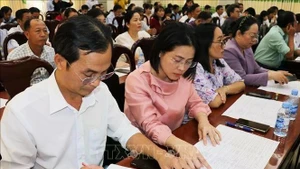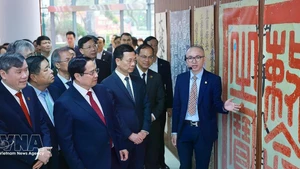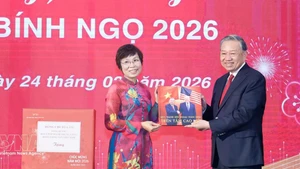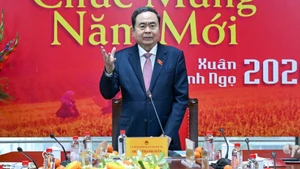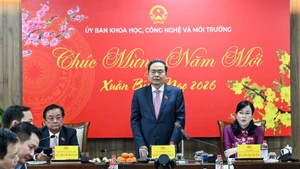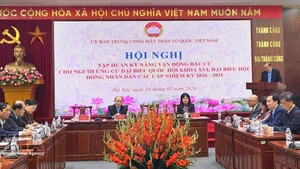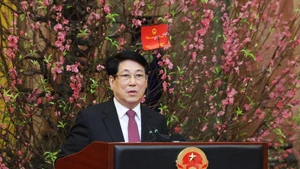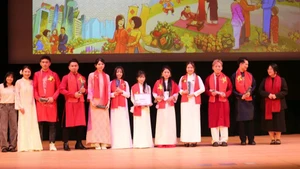The event has attracted the participation of nearly 650 delegates from 49 countries and territories as well as regional and international organisations.
Speaking at a discussion on May 15, Deputy FM Viet highlighted opportunities and challenges during the process of socio-economic development and implementation of the 2030 Agenda for Sustainable Development in the region, especially in Vietnam, and underlined the challenges from climate change in the Asia-Pacific region and Vietnam.
He expressed concern about the severe and profound impacts of the COVID-19 pandemic and current global challenges, such as conflicts, food and water insecurity, natural disasters, biodiversity degradation, and environmental pollution, on the current process of socio-economic development and recovery, especially in the implementation of the Sustainable Development Goals (SDGs).
In this context, the Vietnamese representative suggested strengthening regional cooperation in environmentally-friendly trade and investment, tourism, connectivity, digital transformation, and sustainable urban development.
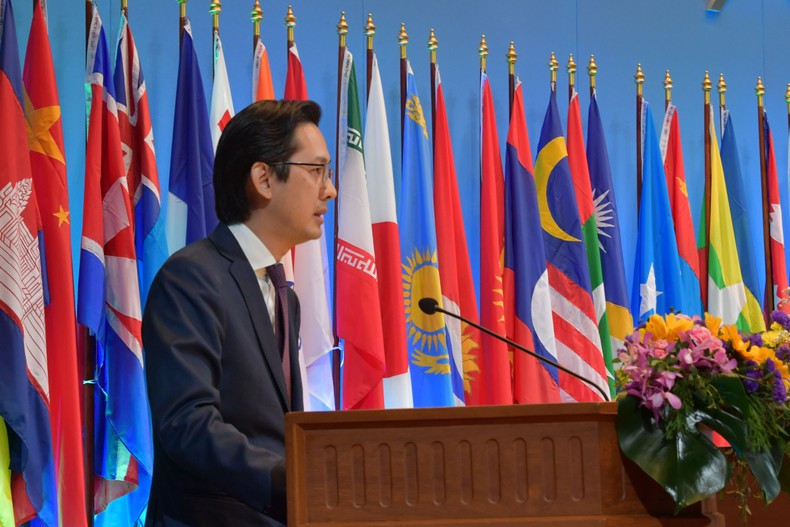 |
| Deputy Minister of Foreign Affairs Do Hung Viet speaks at the session. (Photo: NDO) |
The Deputy FM called for closer international collaboration at all levels in financial support, technology transfer, and sharing of knowledge and experience. The international community, especially developed countries, should make strong commitments at the 2023 SDG Summit in New York in September as well as the 28th UN Climate Change Conference (COP28) in November and December in Dubai, he said.
The diplomat also proposed that ESCAP promote its role in hastening the commitments, coordinate regional cooperation, support regional countries in evaluating the progress of SDGs, and enhance its statistical capacity.
On this occasion, Viet thanked and proposed the international community continue cooperating with and supporting Vietnam in realising the SDGs as well as the commitments it gave at COP26, and implementing the Just Energy Transition Partnership.
He affirmed that Vietnam will continue to work closely with the ESCAP and international partners to promote peace, stability, and prosperity in the region and the world with the motto of “not leaving anyone behind”.
On the sidelines of the meeting, Deputy FM Viet had meetings with President of Palau Surangel S. Whipps Jr. and Parliamentary Vice-Minister for Foreign Affairs of Japan Akimoto Masatoshi.
In his meeting with Palauan Presiden Whipps Jr., Viet said that Vietnam highly valued and hoped to bolster relations with South Pacific island nations, including Palau.
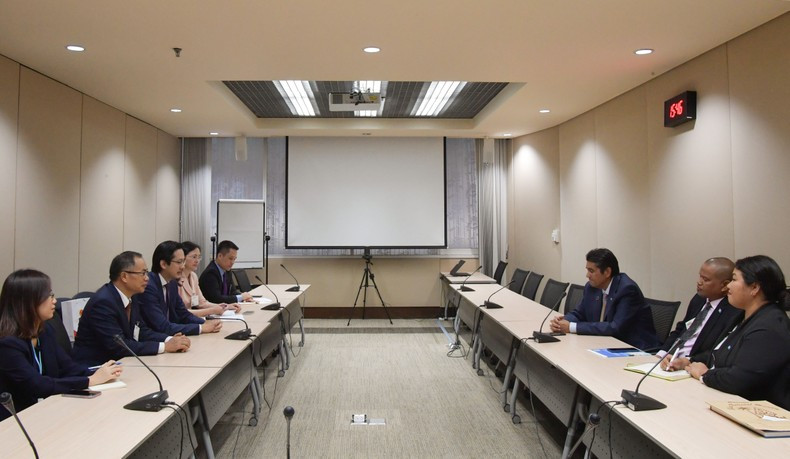 |
| Deputy FM Viet meets with President of Palau Surangel S. Whipps Jr. (Photo: NDO) |
Expressing his delight at the progress of the bilateral relationship since the two countries set up diplomatic relations in 2008, with close cooperation and mutual support within multilateral mechanisms, Viet said that the two sides should increase the exchange of delegations at all levels and strengthen collaboration in trade, investment, tourism, and labour.
President Whipps Jr. said he was impressed by Vietnam’s socio-economic achievements, holding that there is plenty of room for the two sides to promote their relations. He asked Vietnam to soon open a direct air route linking the two countries to foster people-to-people exchanges, tourism, and trade cooperation, while considering the supply of labourers for infrastructure construction projects in Palau in the time to come.
At the meeting with Parliamentary Vice-Minister for Foreign Affairs of Japan Akimoto Masatoshi, the two officials held that Vietnam and Japan have a high level of mutual political trust with growing ties in all fields.
Viet thanked Japan for supporting Vietnam in socio-economic development in recent years, proposing that the two sides continue to work closely together in organising activities to celebrate the 50th anniversary of their diplomatic relations in 2023.
For his part, Akimoto Masatoshi underlined that Vietnam is an important partner of Japan in the region. He suggested the two countries foster coordination in both bilateral and multilateral frameworks while supporting each other at multilateral forums.
